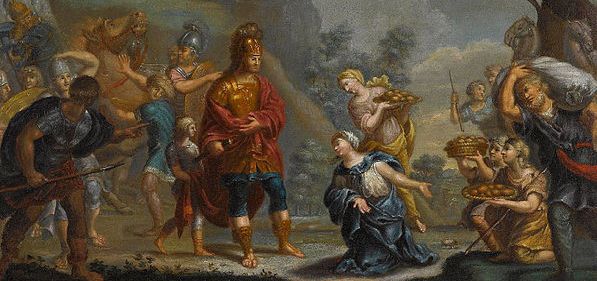How Stories Change Honor Codes (III)
The two previous posts “How Stories Change Honor Codes” (here and here) examine how narratives can subvert and reorient a person’s honor code. We talked about honor codes in the general and abstract. How can they, on the whole, be reoriented towards the goal of honoring God? This post addresses a more specific topic. I believe that Christians in honor-shame societies regularly encounter social situations that Western Christians rarely, if ever, encounter. Because of honor and shame realities, my Christian peers in Central Asia faced dilemmas I never considered. What are some specific biblical stories that can guide Christians honorably navigate unique social situations. Here are two examples of how biblical narratives address specific honor-shame dynamics.
Abigail’s Honoring Hospitality

A group of Christians inside a housing compound in Africa heard the gunfire of approaching rebels. Amidst the panic, some of the ladies remembered how Abigail averted disaster by honoring David with a generous feast (1 Sam 25). Recognizing Abigail’s wisdom, they followed her example and graciously hosted the armed men to a meal. The enemies, once bent on destruction, enjoyed the hospitality and proceeded without harm. The Christians experienced God’s protection by preparing a full table for the opponents armed and prepared to destroy. As David said to Abigail, “Blessed be your (Abigail) discretion, and blessed be you, who have kept me (David) this day from bloodguilt and from avenging (i.e., restoring eroded honor through violence) myself with my own hand.”
Eli’s Sons and Honorable Leadership
When a Central Asian assumed a new leadership role with Cru, he recounted how God used the story of Eli’s sons to reshape his cultural notions of leadership. Hierarchy and high power-distance often defines leadership in honor-shame cultures. Leadership in honor-shame cultures is often characterized by authoritarianism, nepotism, and personal gain. Through the story of Eli, he realized God shames leaders who abuse their authority to attain social distinction (1 Sam 2:12-36). God tells leaders – “Those who honor me I will honor, and those who despise me shall be lightly esteemed.” He was motivated to use his leadership to honor God. When somebody faces a challenging situation, maybe our first question could be…”What is a story that helps them rightly define honorable behavior?”
Do you know of a biblical story offering guidance for situations often encountered by believers in honor-shame contexts? I desire to develop a user-friendly list of such biblical stories, so would love to hear from you.

Leave a Reply